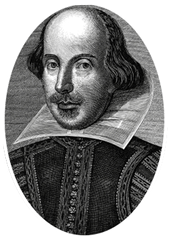Unit #1: Dreams and Aspirations
Throughout this unit, students will explore the various dreams and aspirations of fictional and historical figures, including those whose fulfillment of their dreams made a lasting impact on others. Selections in this unit include short stories, poems, essays, biographies, speeches, and other informational texts that will guide students in addressing the Essential Question, “What makes a dream worth pursuing?”
In this unit the students will write an informative/explanatory essay. Students will choose two selections from the unit to create the informational/explanatory essay that analyzes the impact of dreams and aspirations on the lives and relationships of the people and/or characters in these texts. Students will also conduct research to support the thesis that will serve as the basis for their essay.
Unit #2: In Time of War
How do we behave during war? In the dangerous, heightened period of war, people make extreme decisions, sometimes reflecting the very best of humankind, and sometimes the worst. What do our responses to war and other conflicts teach us about ourselves? This unit prompts students to explore this question and consider the complexities of wartime morality as it existed during World War II. The unit opens with a powerful speech, “Blood, Toil, Tears and Sweat,” delivered by Winston Churchill as the United Kingdom entered into the war against German fascism. Other selections explore both the hope and despair created by war, as expressed by Anne Frank, John Boyne, Elie Wiesel and other Holocaust survivors, young people in Germany, Japanese Americans, as well as proponents of peace, prisoners of war, and more. Students will explore the brave, critical, and illuminating choices that those in extreme conflict are forced to make, and the ramifications of these choices.
In this unit the students will write an argumentative essay.
Unit #3: Suspense!
Hairs rising on the back of your neck? Lips curling up into a wince? Palms a little sweaty? These are tell-tale signs that you are in the grips of suspense. But what attracts us to suspense? What keeps us from closing the book or changing the channel? What compels us to experience in stories the very things we spend our lives trying to avoid? Those are the questions your students will explore in this Grade 8 unit.
Alfred Hitchcock. Stephen King. Edgar Allan Poe. The masters of suspense are at work in this unit, and after reading classic thrillers, your students will try their own hands at the genre, applying what they have learned about suspense to their own narrative writing projects.
Unit #4: A Moral Compass
How is character formed? People are not simply good or bad, but reflect the diversity of human experience. This unit prompts students to explore this question and consider the complexities of morality. How do human beings draw upon their experiences to make a difference in the world and to make themselves better people? One of the first steps is learning about the world. This unit opens with “Abuela Invents the Zero,” a short story by Judith Ortiz Cofer that chronicles a teenage girl’s struggles with her traditional Puerto Rican grandmother and the culture clash it represents. Other selections delve into rich characters and character-building situations as created by Anton Chekhov, Langston Hughes, Louisa May Alcott, Mark Twain, Gary Soto, Rudolfo Anaya, William Blake, and Pablo Neruda. Students will explore the complexities of how people become who they are as well as investigate ways to realize their potential in the world.
The students will be reviewing the three major essay types during this unit.
